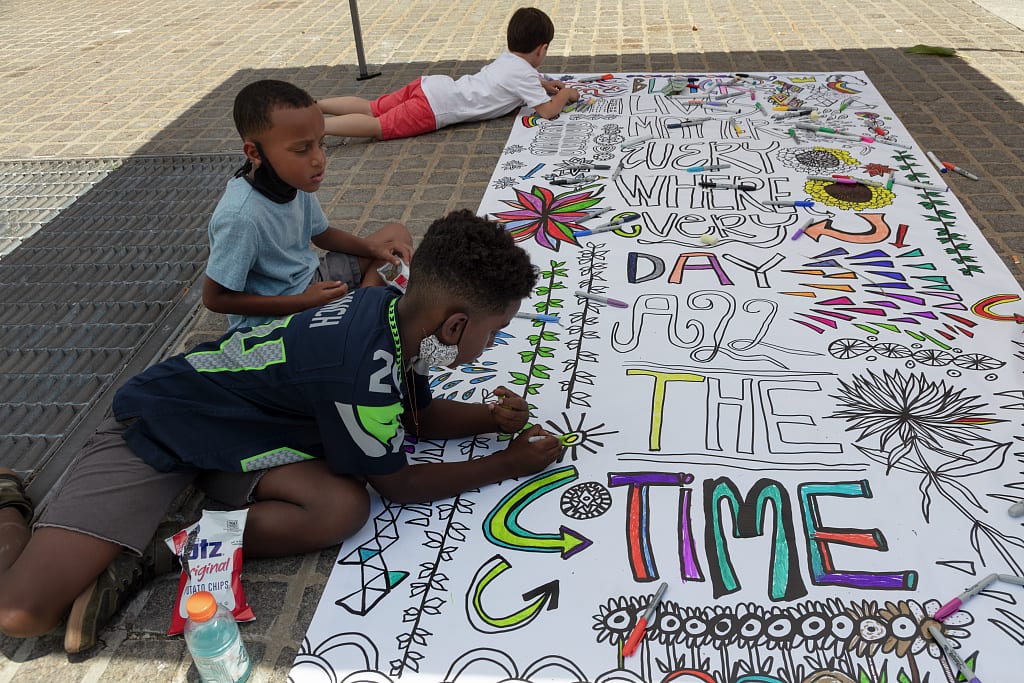Emancipation Day, Richmond, Va. 1905
(Glover, L. S. (Lycurgus S.), 1858-1935 ) From Library of Congress.
Honoring Juneteenth
On Juneteenth, the nation celebrates the end of slavery. The oldest holiday commemorating the emancipation of African Americans from chattel slavery was made into a national holiday on June 17th, 2021. Juneteenth commemorates the day (June 19th 1865) when enslaved African Americans in Galveston, Texas were told about the Emancipation Proclamation, signed two and half years earlier.
Juneteenth gives us the opportunity to honor the efforts made in the cause of African American freedom, as well as human emancipation more broadly, as our society seeks to more fully embrace its promise of Freedom for All. The holiday also provides the opportunity to reflect on the devastating cost slavery and racism exact on our society and contemplate a better path forward.
Using the library’s collections and historical documents, we learn that Juneteenth—also known as Jubilee, or Emancipation Day—began as small regional commemorations originating in Texas, slowly spreading to African American communities across the country. Understanding the need to mark, celebrate, and assert their freedom, community leaders promoted Juneteenth celebrations as spaces to showcase African American accomplishments and culture, develop networks of support, healing and rejuvenation, and to honor the struggle for civil and human rights.
The delay between the Emancipation Proclamation and the freedom celebrated on Juneteenth reveals that emancipation from slavery was a protracted process, experienced unevenly across the United States. It also shows that the end of slavery was not as the result of a single act or declaration, but a movement which gathered its strength through the force of collective action before, during, and after the Civil War. Juneteenth is the commemoration of a profound, nation-altering event—the end of slavery—but it is also the celebration of the process of liberation. As such, it provides us with the opportunity to plan for new emancipatory interventions that can disrupt the historic effects of slavery, racial discrimination, and the denial of freedom that continue to impact society today.
To learn more about Juneteenth, see this Resource for Understanding: Celebrating Juneteenth: Historical and Contemporary Resources.
